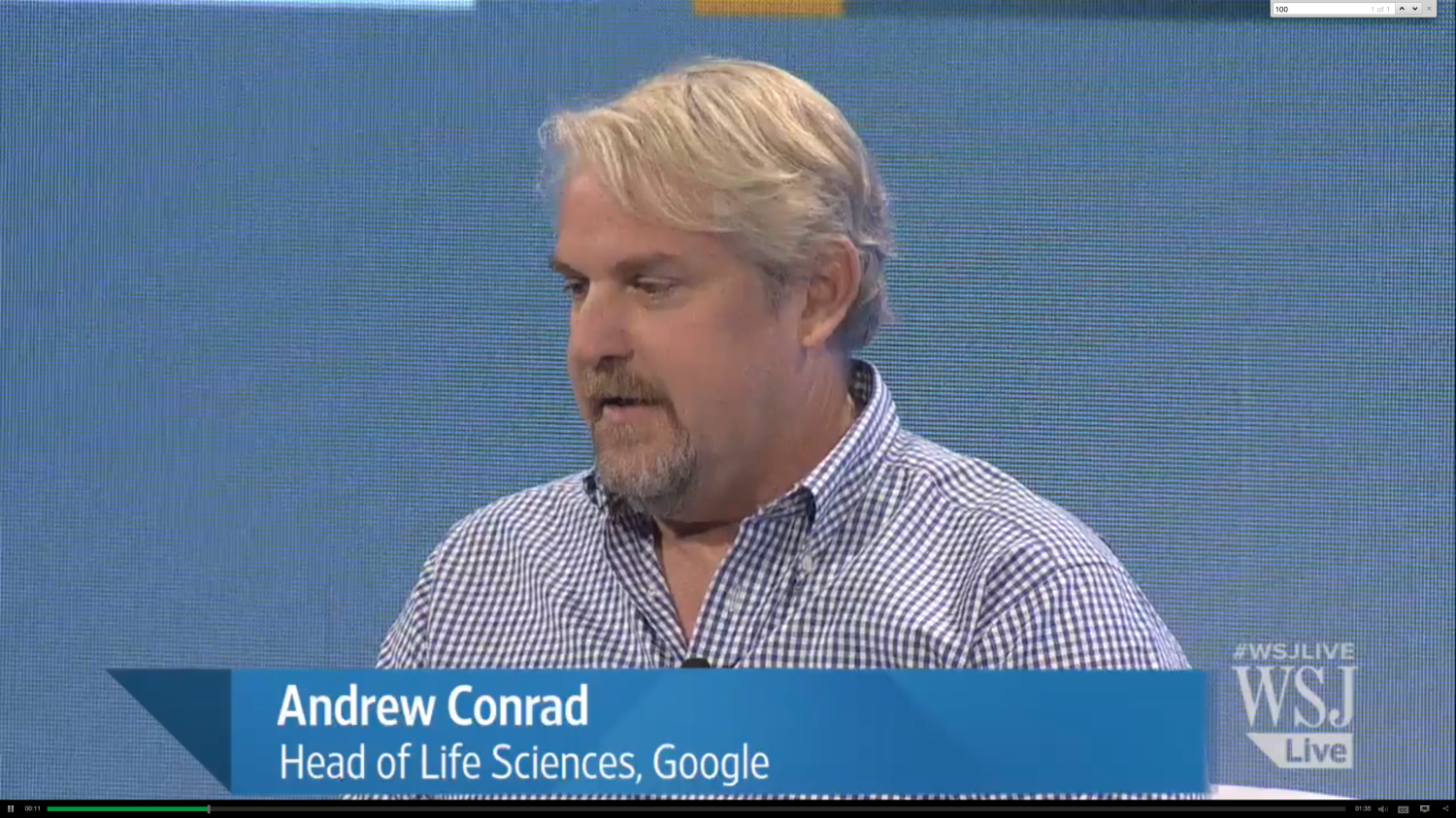This week Google is out with the announcement that Google X is working on a system of nanoparticles that can be an early detector of diseases. Many times the diseases and cancers that are found in people, are found too late to be managed, especially diseases like pancreatic cancer. Google is using gold nanoparticles, which are less than one-thousandth the width of a red blood cell, to flow through the blood and bind to cells, proteins, and other molecules in the body that are dangerous. Their plan is to then use a wearable device (like a smartwatch) with a magnet to attract and count how many particles have detected maladies.
Their goal is to have “Every test you ever go to the doctor for…done through this system” said Andrew Conrad, and he can be seen speaking about it in the video below:
What I like about this technology is that it is not so far out, they are predicting around 5 years, but they have serious resources on the idea, some 100+ Google employees. That is a pretty good sign for how likely they think the project is to work. But what I really like, is the open admittance that combating death is their goal. The quote Conrad said was “Fundamentally, our foe is death. Our foe is unnecessary death. Because we have the technology to intervene, and we should expend more energy and effort on it.”
“Fundamentally, our foe is death. Our foe is unnecessary death. Because we have the technology to intervene, and we should expend more energy and effort on it.”
I am glad that he is so open about the idea to end “unnecessary death” but that implies that some deaths are necessary and that is where I deviate. The problem as of now seems to be that when people talk about extending life beyond the normal range, it kicks up an entire dust storm that obscures the actual point of their announcement, in this case nanoparticles. If we are going to extend life to extreme ranges we are going to need a technology like this, acting like a sentinel in our body, stopping damage as it occurs. I imagine in the future the next step is for the nanoparticles to directly deliver site-specific drugs instead of just tagging the cell as dangerous. I look forward to keeping an eye on this technology and the others like it as they are in a revolutionary class that can help us stop potentially serious issues in our bodies, before they become serious.

